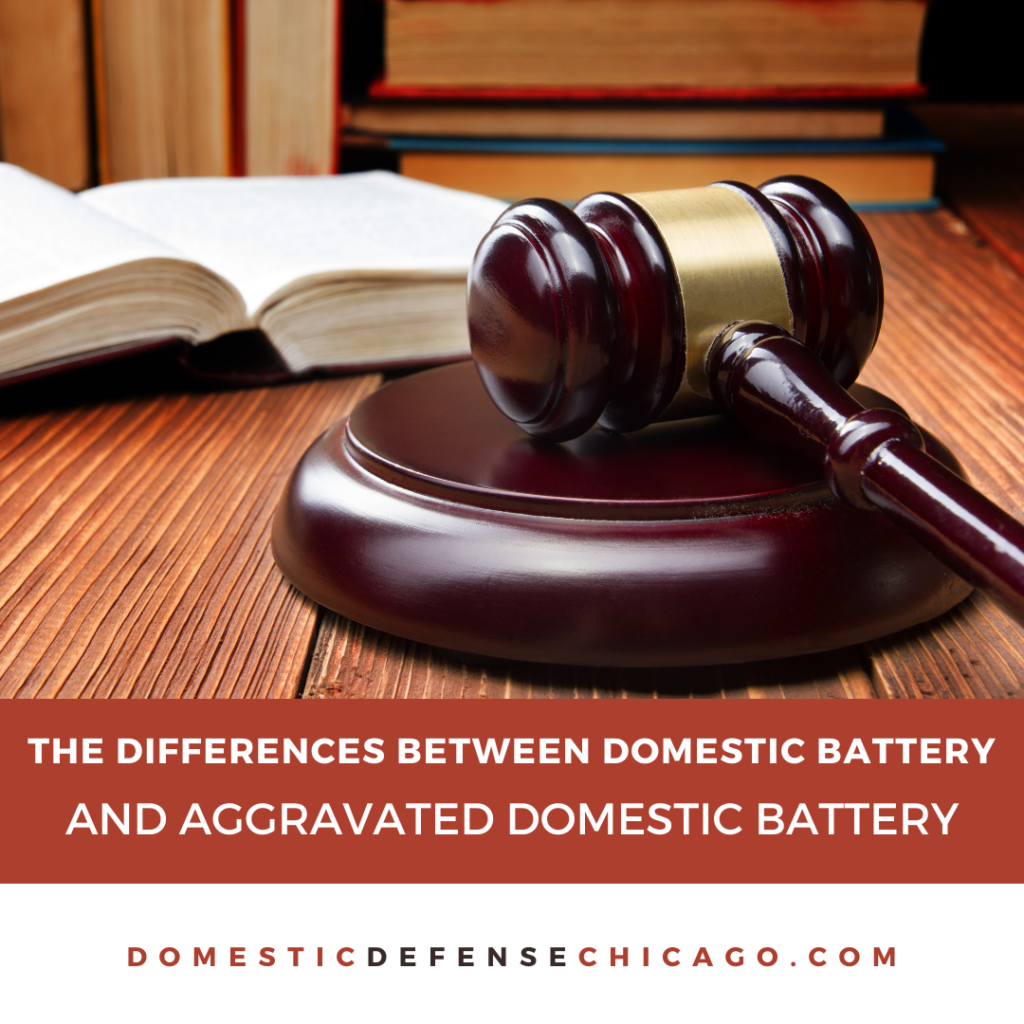Domestic battery and aggravated domestic battery are two criminal charges that can be brought against individuals in Illinois who are accused of physically assaulting someone with whom they have a close relationship, such as a spouse or family member. Although these two charges are similar in many ways, there are some key differences between them that you should be aware of.
Let’s start with domestic battery. This charge is brought against someone who intentionally or recklessly causes physical harm to a family or household member. In Illinois, family or household members can include current or former spouses, parents, children, siblings, in-laws, and even roommates. The punishment for a domestic battery conviction can include up to one year in jail and a fine of up to $2,500.
Related: Will you be charged with domestic battery if you’re in a same-sex relationship?
Now, let’s talk about aggravated domestic battery. This charge is brought against someone who not only causes physical harm to a family or household member, but also uses a deadly weapon in the process. A deadly weapon can include anything from a knife or gun to a car or even a flashlight. If you’re convicted of aggravated domestic battery, you could face up to seven years in prison and a fine of up to $25,000.
So, what makes the difference between these two charges? It all comes down to the use of a deadly weapon. If you’re accused of causing physical harm to someone with whom you have a close relationship and you used a deadly weapon in the process, you’ll likely be charged with aggravated domestic battery. On the other hand, if you caused physical harm without the use of a deadly weapon, you’ll likely be charged with domestic battery.
It’s important to note that even if you didn’t actually use the weapon, you can still be charged with aggravated domestic battery if the prosecutor can prove that you intended to use the weapon. For example, if you brandished a knife during an argument with your spouse, even if you didn’t actually use the knife to harm them, you could still be charged with aggravated domestic battery.
Related: How is domestic battery different from battery in Illinois?
If you’re facing domestic battery or aggravated domestic battery charges in Illinois, it’s important to take the matter seriously. These charges can have serious consequences, including jail time, fines, and a criminal record. In addition, you may also face a restraining order that prohibits you from having contact with the victim.
If you’re facing domestic battery or aggravated domestic battery charges, it’s important to have a skilled criminal defense attorney on your side. Your attorney can help you understand the charges against you, your rights, and the best course of action for your case. They can also help you negotiate a plea bargain or represent you in court if necessary.
In conclusion, understanding the difference between domestic battery and aggravated domestic battery in Illinois is important if you or someone you know is facing these charges. These charges can have serious consequences, so it’s important to take them seriously and seek the help of a qualified criminal defense attorney.
Do You Need to Talk to an Attorney About Domestic Battery Defense?
If you need to talk to a domestic battery defense attorney in Illinois, we’re here to help. Call us at 847-920-4540 now – we’ll be happy to give you a free consultation and talk to you about your options.







Leave A Comment
You must be logged in to post a comment.